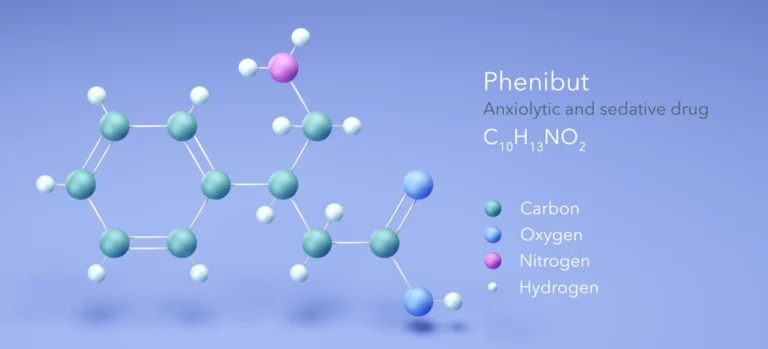The journey to overcoming addiction is multifaceted, involving physical, mental, and emotional healing. One approach that addresses these dimensions is holistic wellness in the addiction recovery process. By concentrating on the whole person rather than just symptoms, holistic wellness offers comprehensive care that can enhance the road to sobriety. This article explores what holistic wellness entails, its key components, and how it can benefit those recovering from addiction.

Understanding Holistic Wellness in Addiction Recovery
Holistic wellness embraces the interconnectedness of the body, mind, and spirit, and aims to create harmony among them as part of addiction recovery.
What Is Holistic Wellness in Addiction Recovery?
Holistic wellness in addiction recovery represents a comprehensive approach that treats the whole person—body, mind, and spirit—rather than focusing solely on substance use symptoms. This integrative method combines evidence-based medical treatments with complementary therapies to create a complete healing journey that addresses the multifaceted nature of addiction.
Unlike traditional approaches that may prioritize symptom management, holistic wellness delves deeper to uncover and resolve the root causes of addiction, such as trauma, chronic stress, or emotional pain. By doing so, it fosters long-term healing and empowers individuals to build a healthier, more balanced life.
This approach also emphasizes the importance of personalized care, recognizing that each individual’s journey to recovery is unique. By offering a wide range of tools and techniques—from acupuncture and massage therapy to journaling and group support—holistic wellness ensures that individuals can find the methods that resonate most with them.
This flexibility not only enhances engagement and motivation but also increases the likelihood of sustained sobriety. Ultimately, holistic wellness is about more than overcoming addiction; it’s about creating a life of balance, fulfillment, and vitality, where individuals can thrive in all areas of their well-being.
The Foundation of Holistic Recovery
The holistic approach recognizes that addiction affects every aspect of a person’s life. Traditional medical treatments form the cornerstone of recovery, providing necessary medical supervision and support during detoxification and early recovery. However, these treatments are enhanced by incorporating alternative therapies that address the multifaceted nature of addiction.
The Role of Holistic Approaches in Recovery
By nurturing all aspects of a person’s life, holistic wellness aims to identify the root causes of addiction, reduce stress, and strengthen resilience. This person-centered care is designed to empower individuals, improving their self-awareness and providing them with sustainable life skills.
Key Aspects of Holistic Wellness
Holistic wellness encompasses various practices and philosophies aimed at supporting a balanced life.
Physical Wellness
Physical health is a cornerstone of holistic wellness, addressing issues such as nutrition, exercise, sleep, and medical care. In recovery, physical wellness is crucial for rebuilding strength and resilience, mitigating withdrawal symptoms, and restoring bodily functions that may have been compromised by substance use. Proper nutrition, for example, helps replenish essential vitamins and minerals, supporting brain function and mood regulation, which are often disrupted during addiction.
Regular exercise not only improves physical fitness but also releases endorphins, reducing stress and promoting a sense of well-being. Quality sleep is equally vital, as it allows the body to repair itself and enhances cognitive function, emotional stability, and overall energy levels. Additionally, seeking medical care ensures that any co-occurring health conditions are addressed, preventing complications that could hinder recovery.
By prioritizing physical health, individuals in recovery can create a strong foundation for healing, enabling them to better cope with challenges and maintain long-term sobriety. This focus on the body’s needs complements other aspects of holistic wellness, fostering a balanced and integrated approach to recovery.
Emotional and Mental Wellness
Emotional and mental health are vital components of holistic care, involving therapy, stress management, and mindfulness practices. Techniques like cognitive-behavioral therapy (CBT), meditation, and yoga can help individuals process emotions, cope with stress, and develop positive thought patterns.
CBT, for instance, empowers individuals to identify and reframe negative beliefs that may contribute to addictive behaviors, fostering healthier ways of thinking and responding to challenges. Meditation and mindfulness practices encourage present-moment awareness, reducing anxiety and promoting emotional regulation.
Yoga, which combines physical movement with breathwork and mindfulness, not only enhances physical health but also helps release stored tension and trauma, creating a sense of inner calm. Additionally, creative therapies, such as art or music therapy, provide alternative outlets for expressing and processing complex emotions that may be difficult to articulate verbally.
By addressing emotional and mental health, holistic care equips individuals with the tools to navigate life’s challenges without resorting to substances, fostering resilience and emotional balance. This integrated approach ensures that recovery is not just about abstaining from addictive behaviors but also about building a fulfilling and emotionally healthy life.
Spiritual Wellness
Spiritual wellness is often an integral aspect of holistic recovery, though it does not necessarily involve religion. It can involve a sense of purpose, connection, and inner peace, nurtured through practices such as meditation, nature walks, or engaging in meaningful activities.

Benefits of a Holistic Approach in Recovery
Embracing a holistic approach can offer a multitude of benefits for those on the road to sobriety.
How Can a Holistic Approach to Addiction Recovery Benefit Individuals’ Road to Sobriety?
Holistic wellness can vastly improve recovery outcomes by addressing the root causes of addiction and facilitating comprehensive healing. Unlike traditional approaches that may focus solely on treating symptoms, holistic wellness takes a multidimensional approach, considering the physical, emotional, mental, and spiritual aspects of an individual.
By doing so, it helps uncover and resolve the underlying issues that contribute to addictive behaviors, such as trauma, chronic stress, or unresolved emotional pain. This comprehensive approach not only supports recovery but also empowers individuals to build a stronger, more resilient foundation for their overall well-being.
One of the key benefits of holistic wellness in recovery is its ability to foster self-awareness. Through practices such as mindfulness, meditation, and reflective journaling, individuals gain deeper insight into their thoughts, emotions, and behaviors.
This heightened self-awareness allows them to recognize triggers, manage cravings, and make conscious choices that align with their recovery goals. Furthermore, holistic practices encourage stress reduction, which is critical for maintaining sobriety. Chronic stress is a common relapse trigger, and techniques like yoga, deep breathing exercises, and progressive muscle relaxation can help individuals manage stress more effectively, promoting a sense of calm and balance.
Holistic wellness is not just about overcoming addiction; it’s about creating a life of balance, purpose, and vitality. By addressing the whole person—body, mind, and spirit—holistic wellness equips individuals with the tools they need to heal, grow, and flourish in their recovery journey and beyond. This transformative approach not only improves recovery outcomes but also empowers individuals to live their best lives, free from the constraints of addiction.
Does Holistic Wellness Really Work for Addiction Recovery?
While results can vary, many individuals find that a holistic approach successfully complements traditional addiction treatment, creating a more personalized and effective recovery experience. Traditional methods, such as medication-assisted treatment, cognitive-behavioral therapy, and 12-step programs, are undeniably valuable and form the backbone of many recovery plans.
However, holistic wellness adds an extra layer of support by addressing aspects of well-being that are often overlooked in conventional treatments. This integrative approach recognizes that addiction is a complex condition influenced by a variety of factors, including physical health, emotional trauma, mental health challenges, and spiritual disconnection. By offering multiple pathways to healing, holistic wellness ensures that individuals have access to a wide range of tools and resources tailored to their unique needs and preferences.
One of the key strengths of a holistic approach is its ability to cater to diverse needs. For example, someone struggling with chronic pain may benefit from acupuncture or chiropractic care to alleviate physical discomfort, reducing the temptation to rely on painkillers or other substances. Similarly, individuals dealing with anxiety or depression might find relief through mindfulness meditation, aromatherapy, or biofeedback techniques.
Holistic practices also provide opportunities for creative expression, such as art therapy or music therapy, which can help individuals process emotions and experiences that are difficult to articulate verbally. By addressing the whole person—body, mind, and spirit—holistic wellness ensures that no aspect of an individual’s well-being is neglected, creating a more balanced and sustainable recovery journey.

Frequently Asked Questions About Holistic Wellness in Addiction Recovery
To further understand holistic wellness in recovery, here are answers to some common questions.
What Is Holistic Wellness in Addiction Recovery?
Holistic wellness in addiction recovery involves treating the whole person by integrating therapies that address physical, emotional, mental, and spiritual health, aiming for comprehensive healing and sustained sobriety.
What Are the Key Aspects of Holistic Wellness?
The key aspects include physical wellness (nutrition, exercise, sleep), emotional and mental wellness (therapy, mindfulness, stress management), and spiritual wellness (sense of purpose, inner peace).
How Can a Holistic Approach to Addiction Recovery Benefit Individuals’ Road to Sobriety?
A holistic approach can improve recovery outcomes by addressing underlying causes of addiction, enhancing self-awareness, fostering emotional balance, and developing skills necessary for long-term sobriety.
Embrace Holistic Wellness for Lasting Recovery
Holistic wellness in the addiction recovery process not only supports healing from substance use disorders but also cultivates a healthier, more balanced lifestyle. By addressing all facets of an individual’s well-being, holistic approaches equip them with the tools needed to achieve and maintain sobriety. If you are ready to embrace holistic wellness in your recovery journey, contact Knoxville Recovery Center or call us today to learn more about how we can support you in achieving lasting wellness and sobriety.








